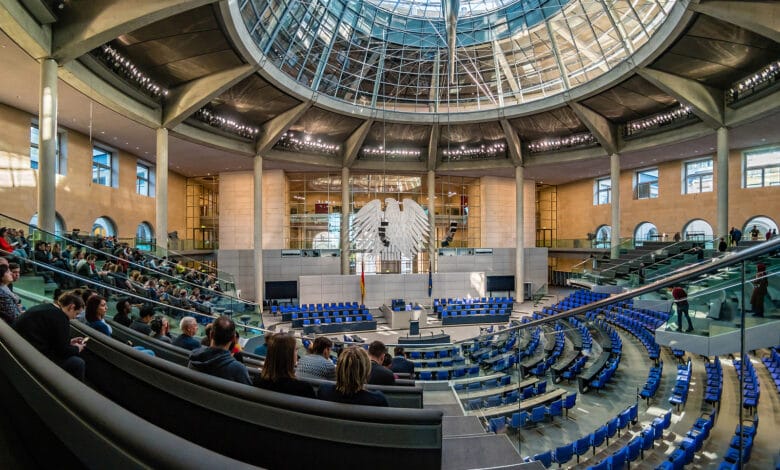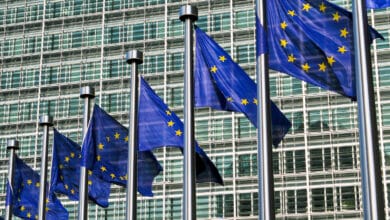
The reform of copyright law is now a done deal, even if it took a few years. For example, upload filters are now unavoidable for larger platforms, and Internet services are to be liable for possible copyright infringements in the case of user-generated content.
More rights for their owners
Although it took a long time, the new EU directive on copyright reform is now in place as of this week. The Union and SPD were in favor of the directive, the Left, AfD as well as FDP were against the new EU directive. The Greens abstained from the vote. The directive will have a number of implications for Internet service providers. For example, services such as Twitter, Facebook and YouTube are to “make best efforts” to acquire the contractual rights to use protected works. In addition, protected content is to be blocked if the rights holder so desires. Thus, upload filters have become almost inevitable for the “big” services.
The Copyright Service Providers Act (UrhDaG) requires “qualified blocking” of content “as soon as the rights holder requests this and provides the information required for this purpose”. In this context, “automated procedures” are also conceivable. YouTube has been using such an automated procedure with its Content ID system for years.
Minor use still permitted
However, minor use of protected content is to continue to be permitted. This means certain content may not be blocked in general before a complaint procedure is completed. In other words, low-volume content. Low volume content is when it “contains less than half of a third party work or multiple third party works.” This is limited to, for example, 15 seconds of a film, 15 seconds of a sound recording, up to 125 kilobytes of an image or 160 characters of text. The limit of 50 percent may likewise not be exceeded in a permitted use, although the size restrictions do not apply here.
License agreements required
As a result of the directive, platforms must now conclude licensing agreements for content if they “by their nature obviously reproduce it publicly in more than negligible quantities.” If the platforms comply with the requirements, no claims for damages can be made here.
If, on the other hand, users violate copyright law with an upload, they remain liable. According to the law, users cannot directly mark the content as legal; this is only possible after a block. However, so-called trusted rights holders can also block content that only has a minor use. This is possible until the decision in the complaint procedure.
Art. 17 subject to reservation
Still under reservation are the regulations of Art. 17 of the Copyright Directive, as the Polish governments have filed a complaint against this with the ECJ. The decision on this is expected before the end of this year. If the case is decided in favor of Poland, this would mean that Art. 17 is invalid. It therefore remains to be seen what will happen next with the regulations on the upload filter.
Amendments to Copyright Act
There were also extensive changes in the Copyright Act. The area of ancillary copyright for press publishers was rewritten, so that “the use of individual words or very short excerpts from a press publication” will be possible without a license. A precise indication of how many characters or words this may be in practice is missing here, however. Due to such unclear regulations, there will still be some problems here.
Participation of authors in revenues
With the ancillary copyright, authors must now also receive a share of the revenues from publishers. The participation is to amount to at least one third. An exception exists if a collective agreement has regulated the remuneration or another joint remuneration arrangement has been made. These claims can only be asserted by collecting societies. The ancillary copyright now covers not only publications on the Internet, but also newsletters. However, “internal reproduction processes”, such as the technical reproduction of documents in order to include them in the index of a search engine, are excluded. This is then not to be an online use covered by performance law.
Private and non-commercial purposes
Furthermore, reproduction for private and non-commercial purposes is permitted. The reasoning states that “if a user posts a tweet for private purposes, for example, which refers to a press publication, this use is not covered by the scope of protection, even if the platform (here: Twitter) pursues commercial purposes.” How this can be implemented with the upload filters of individual platforms remains to be seen.
The changes regarding parodies, caricatures and pastiche are interesting for users. According to the justification, users should be able to access the protected content without restriction, as it has formative content of contemporary culture.
Legal uncertainties
With the many innovations and changes now come but also some legal uncertainties. Google, for example, will now analyze the new “rules calmly and in detail,” according to Google’s vice president for Europe. Furthermore, the company is already conducting negotiations with German publishers. It remains to be seen what consequences the changes will have, and also to what extent the topic of upload filters will develop.



